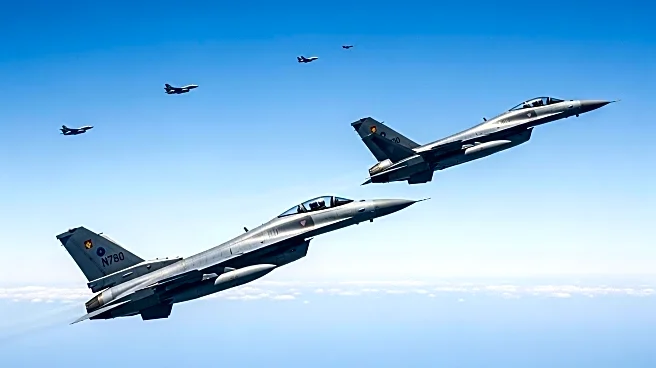What's Happening?
Three Russian fighter jets entered Estonian airspace without permission, prompting NATO aircraft to intercept them. The incursion, described as 'unprecedentedly brazen' by Estonia, occurred over the Gulf of Finland and lasted 12 minutes. Estonia's Foreign Minister Margus Tsahkna condemned the violation and called for increased political and economic pressure on Russia. The incident follows similar airspace violations in Poland, raising concerns about Russia's testing of NATO defenses. President Trump expressed concern over the situation, indicating potential trouble.
Why It's Important?
This airspace violation highlights the ongoing tensions between Russia and NATO, particularly in Eastern Europe. Such provocations test NATO's defense capabilities and could lead to increased military readiness and diplomatic efforts to deter further aggression. Estonia, a former Soviet state, is particularly sensitive to Russian military actions, and this incident may influence NATO's strategic decisions and defense postures. The situation underscores the importance of maintaining strong alliances and defense systems to ensure regional security.
What's Next?
NATO is expected to convene to discuss the incident, potentially leading to increased pressure on Russia and adjustments in defense strategies. Estonia and other affected countries may seek stronger support from NATO allies. The situation could prompt further diplomatic engagements and military readiness exercises to prevent future violations and ensure regional security.
Beyond the Headlines
The repeated airspace violations by Russia may reflect broader geopolitical strategies aimed at testing NATO's resolve and unity. These actions could be part of a larger pattern of Russian military assertiveness in Europe, challenging international norms and security agreements. The incidents may also influence public opinion and political discourse within NATO countries, potentially affecting defense policies and international relations.









